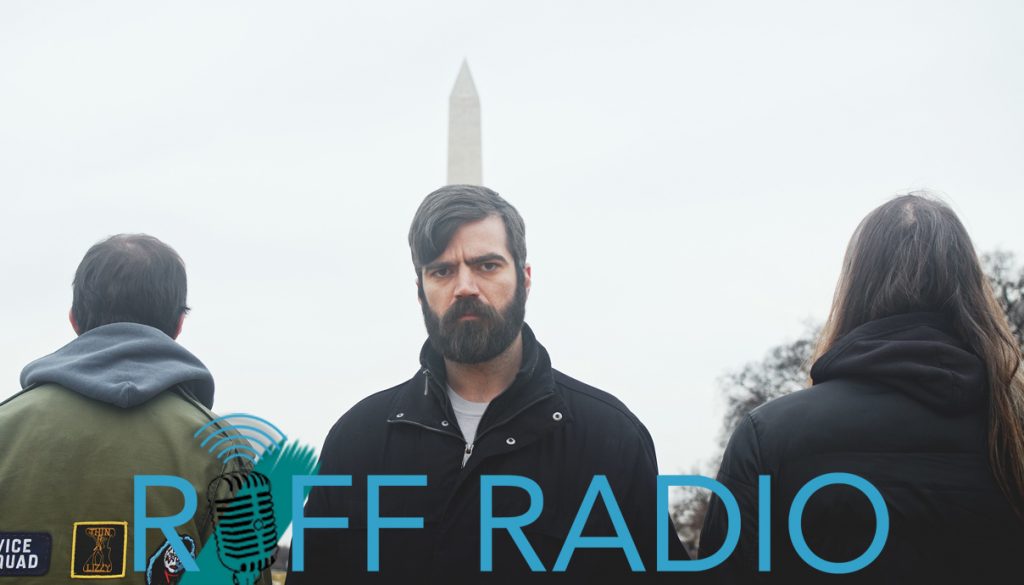RIFF RADIO: Titus Andronicus protests a broken system on raw ‘An Obelisk’

Titus Andronicus. Courtesy: Ray Concepcion.
Patrick Stickles isn’t in the greatest of moods. He answers the phone outside the Crocodile in Seattle, where Titus Andronicus played the night before. The band’s van is broken down and he and his bandmates are stranded. Stickles nursing a slight hangover from the night before. He hasn’t yet figured out quite how the band will get the van fixed and make it to the next city on its 63-date tour. At the same time, Stickles speaks with a measure of pride about his current conundrum. At its core, it is the most raw expression of the rock and roll ethic; an authentic reminder of the realities of being a touring band.
Titus Andronicus
Control Top
8 p.m., Saturday, Sept. 21
Rickshaw Stop
Tickets: $16.
“We’re stranded here, out in the middle of the street—literally,” Stickles said.
Titus Andronicus is on the road for its latest release, An Obelisk, a no-nonsense rock record that pushes in a heavier and rawer direction. Stickles is both the frontman and the creative catalyst. He is blunt, to the point and speaks with purpose on topics ranging from the record to operating in a streaming-focused environment, and to what he sees as the downfall of culture and society. While the band recorded An Obelisk in two weeks, some of it actually pre-dated 2018’s A Productive Cough, a record that saw the band explore more roots and acoustic influences. Stickles said when he was considering how best to follow the band’s ambitious 93-minute rock opera The Most Lamentable Tragedy, the idea of the two related but counterpoint albums to be the best avenue.
Stickles recruited Bob Mould to produce after hearing that Mould had specifically mentioned Titus Andronicus as one of his favorite bands—which floored him. Needing more convincing, Stickles asked the journalist who wrote the piece to make sure the writer wasn’t simply adding his own creative license.
“I’d never dreamed that this guy had even heard of it, let alone had nice things to say,” Stickles said.
After Stickles reached out, Mould responded two hours later in the affirmative. Not only that but he included a detailed plan of where, when and how they would go about getting the album recorded. Inspired by working with Mould, the band recorded in an accelerated pace.
In our chat Stickles also dove into what he sees as problems inside the work of punk. Specifically, he’s angry that some people use the aggressive music to act out aggressively in crowds and invading others’ personal space. The singer wants to see a shift where audiences are paying attention rather than throwing elbows in a mosh pit.
The album’s title in part references a consolidation of power as an obelisk narrows at its highest point. The theme could have any number of applications, from wealth to influence and power. It’s a systemic design that Stickles sees as interconnected. The album is a protest against the system that Stickles sees as broken beyond repair. It’s told through the voice of a narrator, as opposed to Stickles’ direct point of view.
“We’re screwed,” Stickles said. “The system is designed to make sure there’s always gonna be a bunch of poor people so that we can make them do shit jobs, and clean toilets, and go off to die in the desert for no fucking reason.”
Follow writer Mike DeWald at Twitter.com/mike_dewald.
